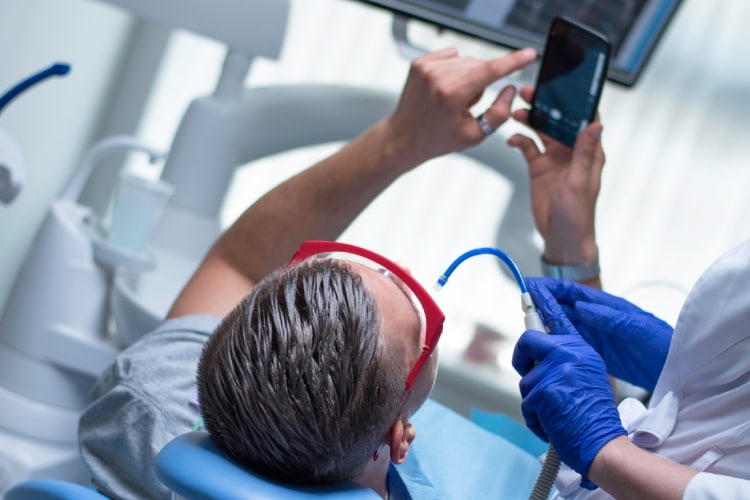Patients are using the internet more and more to self-diagnose their health conditions with many people's first port of call when they have a health issue being Dr Google - 35% of U.S. adults had gone online as early as 2012 to figure out a medical condition, and the number has only increased since then.
Although many health professionals have negative connotations with using Google to diagnose problems, this does present opportunities to work with patients, develop a relationship with them, and achieve lifelong loyalty.
Dentists should understand that patients who use internet searches are demonstrating concern for their oral health and value a healthy mouth, so researching via the Internet is not necessarily a bad thing in and of itself. Dental professionals should use this as an opportunity to reassure their patients that they are the ultimate source of information who should be consulted if there is a concern. Dentists should educate their patients on current and accurate oral health information and point them to reliable, trusted sources of information online.
Patients who use the internet to perform searches about health conditions may or may not have less anxiety about treatment and may be well informed about their treatment and outcome options. There are those who increase their anxiety through internet searches and may develop 'Cyberchondria'. Cyberchondria is 'heightened distress evoked through excessive searches of the internet for medical information.' In people who are healthy, this can lead them to become intolerant of uncertainty and to display an increased level of anxiety about their health. Therefore it is important for dental professionals to be open to listening to information patients find online - responding in an open, non-judgmental and positive manner to build rapport with patients as well as establishing yourself as the dental expert with the correct information your patients need.
During the pandemic, access to online information has been particularly important to deliver patient education and information virtually when there has been limited access to face-to-face care. In-person health appointments are ideal for comprehensive discussions, they allow for detailed explanations, discussions and more time for consideration of multiple factors, including the patient's medical health. However, many services, including dental services, now offer video or phone consultations. These can ensure that information is easily accessible for patients to clarify queries or discuss information found online. Some people might choose to avoid to visit the dental office face-to-face due to anxiety, and instead access Dr Google or even virtual consultations. It is important to emphasize to patients that nothing replaces in-person care as, without this, there is a risk that oral health conditions are missed which can have serious consequences, for example, oral cancer.
No online resource is a replacement for a visit to the dentist, but the internet is a valuable tool for collaboration between the dental team and the patient in order to help improve oral health.


Was this article helpful?
If you’d like a response, Contact Us.